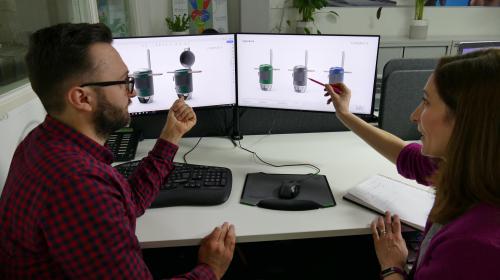How will Coronavirus Impact Medical Device Industries?
In early January this year I wrote an article looking at the Medical Device Trends for 2020. Roll on two months and the unwelcome arrival of the coronavirus pandemic means that developments in medical device industries will be heavily affected by the enormous pressure which hospitals and public health systems find themselves under.
With a medical device R&D centre in Shanghai, IDC's team have been watching how the medical industries and healthcare system in China has been dealing with the outbreak and what these experiences will mean for medtech businesses around the world. Below are seven big effects which the coronavirus will have on medical device industries globally.

1. Increased Demand for Protective Consumables, Ventilators and ECMO (Extracorporeal Membrane Oxygenation)
During the China outbreak, the demand for medical masks outstripped supply by five times; with demand for protective clothing exceeding supply around 2.5 times. The rapid spread of the virus around the world means global demand for protective consumables will be at unprecedented levels for the next 12 months before dropping back but maintaining levels significantly above historic demand. Likewise, hospitals will be looking to increase the number of ventilators and respirators but this could lead to a drop in demand as the pandemic declines.
2. Expansion of Testing Facilities
Delays and limits to testing have impaired the ability of public health systems to respond to Coronavirus outbreaks and most nations are now scrambling to install additional testing capacity. Nucleic acid reagents and RT-PCR (Reverse Transcription Polymerase Chain Reaction) are the techniques most widely used. Demand for these systems, especially from big players such as Roche and Thermo Fisher is likely to exceed supply as healthcare systems scramble to build testing capacity.
3. Cancellation of Non-Urgent Procedures
Pressure on hospitals ICUs, healthcare staff and beds, coupled with patients' fear of infection will mean many elective and non-urgent operations in general hospitals will be cancelled or delayed. This is likely to affect areas of surgeries such as hip, knee, hernia, urinary stone, cataract and myomectomy. Orthopaedics companies such as Stryker and DePuy Synthes could therefore see a drop in demand in 2020.

4. Increased State Funding for Vaccine and Virus Research at the Expense of Other Clinical Developments
The race to find effective treatments for COVID-19 has seen governments direct resources towards vaccine research and trials of antiviral drugs. This has particularly been the case in China where the National Health Commission’s Science and Technology Development Centre is indicating that a vaccine could be ready for trials as early as next month. Alongside this, special approvals have been granted for trials of a number of potential antiviral drugs. Unfortunately the focus on these trials, coupled with the strain placed on hospitals, means many trials of other drugs will have to be paused, delayed or abandoned.
5. Uptake of Robotic Surgery and Innovative Procedures Likely to be Delayed
The increased focus on coping with the epidemic is also likely to divert focus and funds from trials or trials of other new or experimental procedures and equipment. Areas such as robotic surgery are likely to suffer delays in investment and update in many general and public hospitals. Private and specialist centres are less likely to be affected.
6. Reduced / Delayed Venture Capital Funding
The fear of a big economic slowdown due to the coronavirus pandemic has sent financial markets crashing and investors searching for safe, liquid assets. This is likely to lead to a significant reduction in the availability of venture capital funding for medtech businesses, delaying or jeopardising the development of some innovative new medical devices.
7. Acceleration of Digital Health / Remote Healthcare Provision
Worldwide, people who suspect they may have become infected with COVID-19 have been told to stay at home and not visit hospitals or doctors' surgeries. Simple automated online diagnosis tools and instructions are being used to reduce the burden on human telephone operators and advisors. As the epidemic develops, expect to see more sophisticated online diagnosis and advice apps developed as well as greater numbers of video consultations with doctors. This is likely to accelerate a longer term trend with patients becoming increasing comfortable with automated diagnosis and remote care. At the same time, it offers a solution to healthcare systems looking to reduce the bottlenecks that currently exist in physical hospitals.
The Coronavirus pandemic is going to have an enormous effect on us all over the coming months but on balance medical device industries are likely to fair much better than other areas of the global economy. Hopefully we can all continue to work and stay safe until the crisis passes.
About the Author
Stephen Knowles is the Managing Director of IDC. A chartered engineer with 20+ years experience leading technical and non-technical product developments in the medical industry. With a PhD in Mechanical Engineering and a thorough understanding of design and manufacture, Stephen is often invited to speak on the subject of product development.



